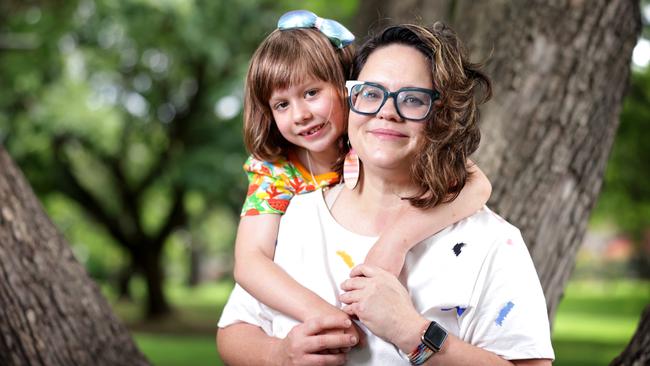Back to school: How to avoid bullying
Parents and experts have shared their advice on how to avoid bullying as back to school kicks off including everything from warning signs to how to make friends.

QLD News
Don't miss out on the headlines from QLD News. Followed categories will be added to My News.
Parents and experts have shared advice on how to avoid bullying as school returns, including everything from warning signs to how to make friends.
For Brisbane mum Taryn Kidd, it was all about finding the right fit for daughter Rosie, 7, who starts at a new school this week.
“You want your kids to be happy and mentally well and Rosie was struggling at her last place,” she said.
“She was getting sick a lot, quite a few of her friends left, it got to a point where she wanted to leave.”
Ms Kidd said before the first day she would talk to Rosie about being brave, confident and trying to stay positive.
“I think for parents and for myself you know your kids the best and you actually have to trust your judgement,” she said.
Rosie said there weren’t many kids at her last school and she was both nervous and excited about her new school.
“So, I wanted to go to a school that had more kids and more opportunity for me to make new friends,” she said.
“I’m joining the rock and roll band, I think it’s called a rock ensemble.”
Rosie said thinking about others and being kind were the best ways to make friends.
Research from Kids Helpline, powered by Yourtown, shows that in the past 12 months more than 3000 of Kids Helpline counselling sessions were related to bullying.
Yourtown’s Tracy Adams said young people couldn’t see a way out of bullying.
“More than 178,000 individuals accessed bullying-related information on Kids Helpline’s website in 2024,” she said.
Carol Markie-Dadds, from parenting program Triple P, said that while the new school year offered children fresh opportunities for learning and development, it could also be a time of uncertainty.
“Bullying or mean behaviours can happen in-person or online on social media or games, be it verbal name-calling, deliberately leaving someone out, toxic group chats, or even escalating to the physical, like pushing or worse,” she said.
“To help kids cope, parents and carers play a vital role.”
Griffith University Professor Donna Pendergast said bullying and friendships sat under the umbrella of social and emotional learning, and it was important to help young people “develop their social and emotional abilities”.
Prof Pendergast said smiling and having positive body language were excellent ways for kids to make friends.
“It’s also about joining into activities. So looking for people who are involved in and interested in similar things to yourself and becoming part of those and depending on the age of the student,” she said.
Prof Pendergast said ways to spot if your child was being bullied included avoiding school and becoming disengaged.
Originally published as Back to school: How to avoid bullying



